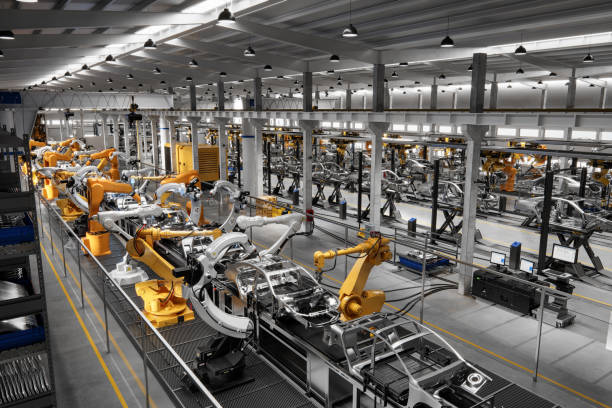Industrial conveyor belts, the unassuming workhorses of modern manufacturing, have come a long way from simple pulley systems. Behind their unassuming facade lies a world of innovation driven by industrial conveyor belt manufacturers. This article explores the cutting-edge innovations that are reshaping the industry, propelling conveyor systems into the future, and addressing the evolving needs of diverse industrial sectors.
Smart Conveyor Systems: In an era dominated by Industry 4.0, industrial conveyor belt manufacturers are incorporating smart technologies to create intelligent conveyor systems. These systems utilize sensors, IoT (Internet of Things), and advanced monitoring capabilities to provide real-time data on belt performance, production efficiency, and maintenance needs. Predictive analytics enable proactive maintenance, reducing downtime and enhancing overall system reliability.
Materials of the Future: Traditional materials like rubber and steel still form the backbone of conveyor belts, but manufacturers are exploring innovative materials to enhance performance and sustainability. High-performance polymers, composite materials, and even recycled components are being integrated into conveyor belt designs. These materials not only improve durability but also contribute to a more environmentally friendly manufacturing process.
Modular and Flexible Designs: Industrial conveyor belt manufacturers are increasingly adopting modular and flexible designs that allow for easy customization and scalability. This adaptability is crucial in industries where production requirements are subject to change. Conveyor systems with modular components facilitate quick adjustments, additions, or modifications, ensuring that the conveyor adapts seamlessly to evolving operational needs.
Energy Efficiency and Sustainability: A growing emphasis on environmental responsibility has led to a focus on energy-efficient conveyor systems. Manufacturers are designing belts with reduced friction, incorporating energy recovery systems, and exploring renewable energy sources to power conveyor systems. These innovations not only decrease the ecological footprint of industrial operations but also contribute to cost savings over the long term.
Robotics Integration for Enhanced Automation: As industries increasingly embrace automation, conveyor belt manufacturers are working hand-in-hand with robotics engineers to create integrated systems. Conveyor belts are becoming an integral part of automated production lines, collaborating with robots to handle tasks such as sorting, packaging, and quality control. This synergy between conveyor systems and robotics enhances precision and efficiency in manufacturing processes.
Collaboration with AI and Machine Learning: Artificial intelligence (AI) and machine learning (ML) are revolutionizing how industrial conveyor systems operate. Conveyor belt manufacturers are incorporating AI algorithms to optimize routing, monitor performance, and predict potential failures. This data-driven approach allows for continuous improvement and ensures that conveyor systems operate at peak efficiency.
Conclusion: The realm of industrial conveyor belt manufacturing is undergoing a profound transformation, fueled by innovation. The integration of smart technologies, the exploration of new materials, and a commitment to sustainability are propelling conveyor systems into a new era. As industrial conveyor belt manufacturers continue to push the boundaries of what is possible, businesses can expect more efficient, adaptable, and environmentally conscious conveyor solutions, shaping the future of material handling in diverse industries.












